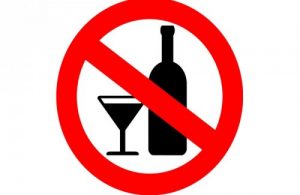How to Survive the Holidays in Recovery
Tuesday, November 25th, 2025Addiction and Recovery
By Bob Gaydos
(Some thoughts worth repeating.)
When I began writing my Addiction and Recovery column 18 years ago, it soon became obvious to me from conversations with people in recovery that this time of the year could be challenging, especially for those with alcohol or food disorders. Accordingly, and because new people enter recovery each year, I have made this particular column an annual offering.
***
We are entering the so-called Bermuda Triangle of Thanksgiving, Christmas and New Year’s, the time to “eat, drink, and be merry.” That can be tough to do when you’re an alcoholic in early recovery, someone with an eating disorder, or someone who just loves to use the credit card. Addicts all in their own way. Times have changed. We now have California sobriety, Dry Januarys, fancy mocktails. But the suggestions in this column remain pretty much the same, many of them gleaned from talking to members of Alcoholics Anonymous with longtime sobriety. If it’s not broke, they suggest, don’t fix it. But, as time has gone on, I’ve learned that an equally important audience for this column are the party givers, some of whom may not understand the challenges of recovery. So, gracious hosts, this one’s also for you.
People who have found their way to recovery, be it via a 12-step program or otherwise, have been given suggestions on how to survive the season of temptation without relapse. If they use these tools, with practice, they can even enjoy the season.
It’s the rest of you I’m mainly talking to here. You hosts, family members, well-meaning friends who want to be supportive and do the right thing, but aren’t sure what that is. And yes, to those who don’t get the concept of addiction at all, but can still avoid harming a relationship by following a few basic suggestions. So, herewith, some coping tools for the non-addicted, if you will:
- “No, thank you” is a complete sentence and perfectly acceptable answer. It should not require any further explanation. “One drink won’t hurt you” is a dangerously ill-informed reply. The same goes for, “A few butter cookies won’t hurt. C’mon, it’s Christmas.” Or, “Get the dress. Put it on your credit card. You’ll feel better.” Not really.
- By the way, “No, thank you” is an acceptable answer even for people not in recovery. Not everyone who turns down a second helping of stuffing or a piece of pumpkin pie is a member of Overeaters Anonymous. Not everyone who prefers a ginger ale rather than a beer is a member of AA. Not everyone who won’t go into hock for an expensive New Year’s Eve party is a compulsive debtor. But some of them may be.
- If you’re hosting a party to which people in recovery have been invited, have some non-alcoholic beverages available. Not just water. There are plenty of new ones available. Don’t make a big deal about having them, just let your guests know they are available. The same goes for food. Have some appetizing low-calorie dishes and healthful desserts on hand. Don’t point out that they’re there because so-and-so is watching his weight. Just serve them. You’ll be surprised how many guests enjoy them and comment on what a good host you are.
- If you’re honestly concerned about how the person in recovery is doing, approach him or her privately. He or she might not feel comfortable discussing it in front of other guests. If you’re just curious, keep it to yourself.
Honoring a guest’s wishes is a sign of respect. Anticipating them in advance is even better. Encouraging someone to eat, drink or spend money when they don’t want to is, at the very least, not gracious. Pressuring someone to partake of something when you know he or she is trying hard to avoid it is a good way to lose a friend. Addictions are not trivial matters. “No, thank you,” is a perfectly good answer. Members of Alcoholics Anonymous, Overeaters Anonymous and Debtors Anonymous will be especially appreciative if you remember that.
Enjoy your party.
***
For recovering addicts, the tools should be familiar, but always bear repeating:
- Bring a recovery friend to a party.
- Have phone numbers and your own transportation available if you want to leave an uncomfortable situation.
- If you’re uncomfortable about attending a party because of who will be there, be it family or friends who are not supportive, don’t go. Politely decline.
- Keep track of your drink. If you’re not sure the one on the table is yours, get a new one.
- When shopping, deal in cash; forget about credit cards.
- Don’t feel obliged to try every dish on the table.
- And, again, “No, thank you,” is a complete sentence. Don’t feel obliged to explain and don’t worry about hurting your host’s feelings at the expense of your recovery. There’s always next year.
Enjoy your recovery.
For more information:
Alcoholics Anonymous: www.aa.org
Overeaters Anonymous: www.oa.org
Debtors Anonymous: debtorsanonymous.org
PS: Don’t be shy about sharing this column with anyone you think would benefit from it. And enjoy your holidays.
rjgaydos@gmail.com


